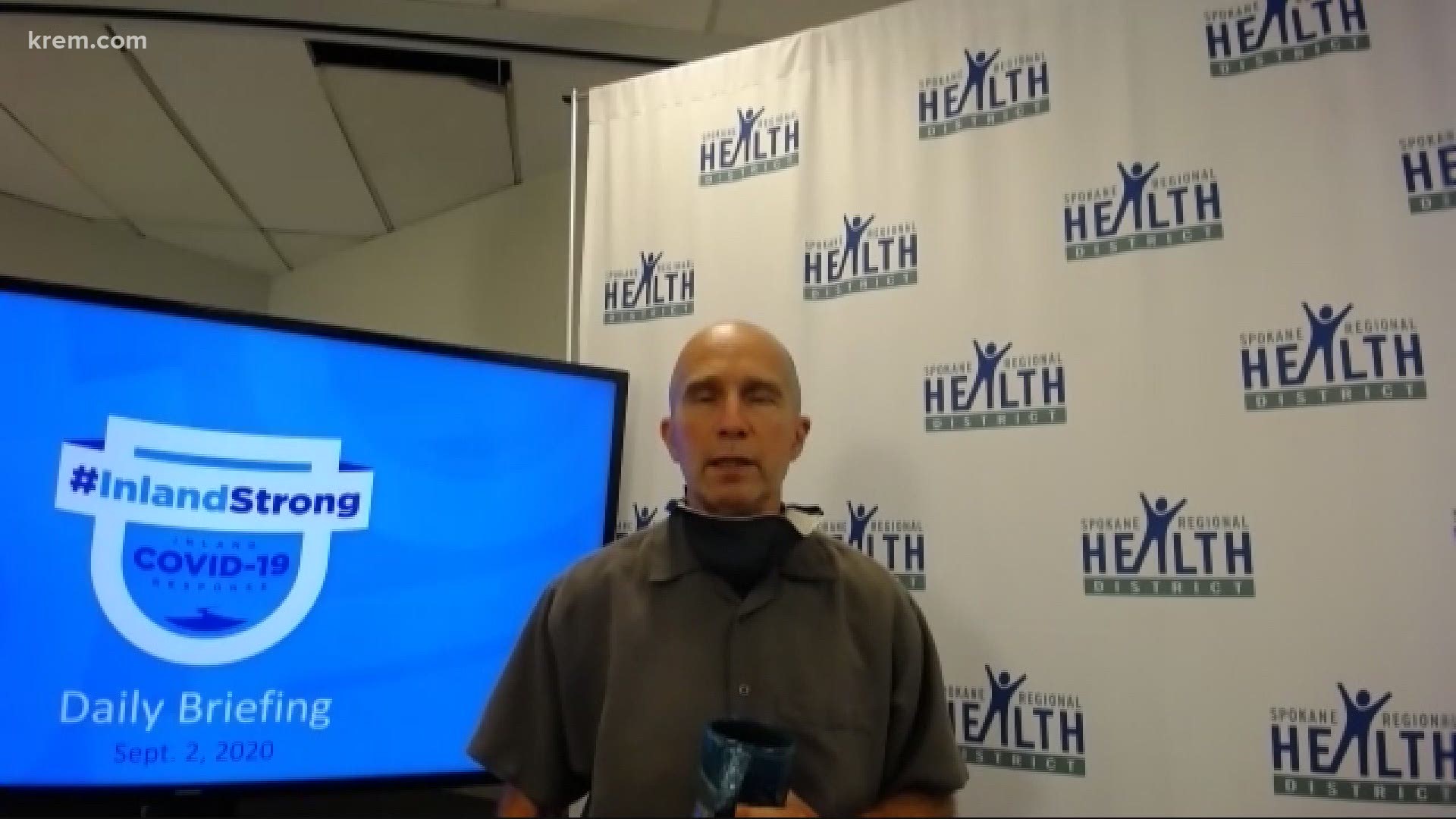SPOKANE, Wash. — Cities throughout the United States, including Moscow, Idaho, are testing their wastewater for COVID-19 as a means to better understand the amount of community spread.
Spokane County isn’t testing its sewage yet, but the county’s health officer said on Wednesday that he hopes that will change.
Since May, the City of Moscow’s Water Reuse and Reclamation Facility has participated in a nationwide wastewater testing program to monitor the presence of COVID-19. The testing identifies, replicates and measures viral ribonucleic acid (RNA) in a given sample.
The program in Moscow is run by Biobot Analytics, a company that analyzes viruses and bacteria that are excreted in urine and stool and collected in sewers.
Dr. Lutz, who serves as health officer in Spokane County, said on Wednesday that several of his colleagues at Washington State University have already created a proposal to conduct wastewater sampling across the community. Lutz was on that proposal.
The proposal was not funded by the National Institutes of Health, Lutz said, but experts at WSU are now looking for local funding sources.
“And the thing that I believe was a little bit more interesting about our proposal than what we’ve seen elsewhere done, such as in Moscow, was that rather than going right to the wastewater treatment plant, we were looking to do it in a sampling strategy across the community,” Lutz said.
That means public health experts could see where cases might be occurring and target testing to those areas to get on top of potential outbreaks, Lutz said.
“I think that it’s a great opportunity from a surveillance standpoint to get a snapshot on what’s happening. I’d love to see local funding for that project happen,” he added.
Wastewater testing can help experts monitor COVID-19 trends
Reports for the first three tests conducted in Moscow resulted in no detectable cases of COVID-19. Since that time, tests have resulted in thousands of estimated cases.
"Due to the significant uncertainty of case estimation based upon virus loading in wastewater, we are far more interested in the concentration of the virus in the samples and the trends for concentration, than we are in the Biobot estimated case numbers," said Tyler Palmer, who serves as Moscow’s Deputy City Supervisor.
The city is also cooperating with the University of Idaho as it initiates a wastewater testing program. Staff are reviewing Biobot’s findings and comparing them with their results.
Experts at the University of Idaho say it is difficult to truly estimate the number of COVID-19 cases from wastewater detection, a sentiment echoed by others working in public health. Regardless, it can help communities monitor coronavirus trends over time.
“Sewage testing over time can provide trend data that can complement other surveillance data that informs public health decision making,” the Centers for Disease Control and Prevention wrote on its website. “However, at this time, it is not possible to reliably and accurately predict the number of infected individuals in a community based on sewage testing.”
Recent reporting from multiple national media outlets, including The Washington Post, said testing wastewater at the University of Arizona, helped storm a dormitory’s COVID-19 outbreak before it began.

